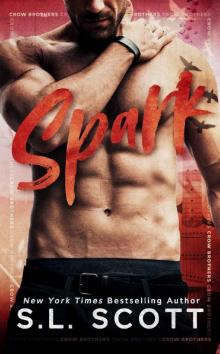 The Havana Game
The Havana Game Flame fc-4
Flame fc-4 Serial fq-6
Serial fq-6 In for the Kill fq-2
In for the Kill fq-2 Single White Female
Single White Female Frenzy
Frenzy Chill of Night n-6
Chill of Night n-6 Buyer beware an-1
Buyer beware an-1 Spark fc-7
Spark fc-7 Spark
Spark Hot fc-6
Hot fc-6 Burn fc-9
Burn fc-9 Fear the Night
Fear the Night Diamond Eyes (Alo Nudger Book 7)
Diamond Eyes (Alo Nudger Book 7) Bloodfire fc-5
Bloodfire fc-5 Oops! (Alo Nudger Book 10)
Oops! (Alo Nudger Book 10) The Honorable Traitors
The Honorable Traitors Kiss fc-3
Kiss fc-3 Ride the Lightning (Alo Nudger)
Ride the Lightning (Alo Nudger) The right to sing the blues an-3
The right to sing the blues an-3 Torch fc-8
Torch fc-8 The Truth of the Matter
The Truth of the Matter Death by Jury (Alo Nudger Series Book 9)
Death by Jury (Alo Nudger Series Book 9) Lightning
Lightning SWF Seeks Same
SWF Seeks Same Until You Are Dead
Until You Are Dead Torch
Torch Switch
Switch Pulse
Pulse Time Exposure (Alo Nudger)
Time Exposure (Alo Nudger) Final Seconds
Final Seconds The Right to Sing the Blues (Alo Nudger Book 3)
The Right to Sing the Blues (Alo Nudger Book 3) NightKills
NightKills Scorcher fc-2
Scorcher fc-2 Mister X fq-5
Mister X fq-5 Pulse fq-7
Pulse fq-7 Ride the lightning an-4
Ride the lightning an-4 Night Victims n-3
Night Victims n-3 Flame
Flame John Lutz Bundle
John Lutz Bundle Tropical Heat fc-1
Tropical Heat fc-1 The Ex
The Ex Hot
Hot Kiss
Kiss Night Victims (The Night Spider)
Night Victims (The Night Spider) Burn
Burn Twist
Twist Tropical Heat
Tropical Heat Slaughter
Slaughter In for the Kill
In for the Kill The Nudger Dilemmas
The Nudger Dilemmas Chill of Night
Chill of Night Darker Than Night fq-1
Darker Than Night fq-1 Lightning fc-10
Lightning fc-10 Bonegrinder
Bonegrinder Darker Than Night
Darker Than Night Bloodfire
Bloodfire Nightlines an-2
Nightlines an-2 Fear the Night n-5
Fear the Night n-5 Carnage: Short Story
Carnage: Short Story Night Kills
Night Kills Urge to Kill fq-4
Urge to Kill fq-4 Thicker Than Blood (Alo Nudger Series)
Thicker Than Blood (Alo Nudger Series) Nightlines (Alo Nudger Book 2)
Nightlines (Alo Nudger Book 2) Night Victims
Night Victims Scorcher
Scorcher Serial
Serial